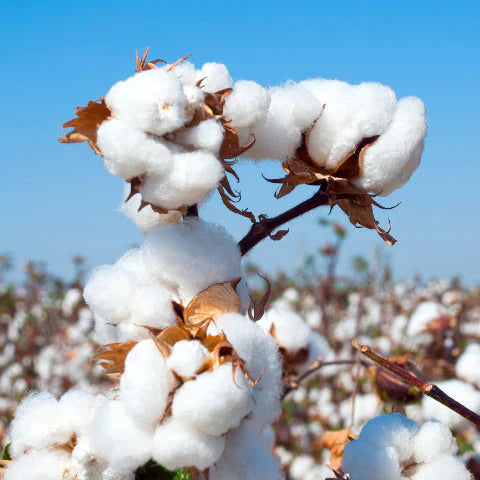
Future of Fabrics
Fabrics matter to us here at Lavender Hill. Since the brand was founded back in 2013 our founder Isobel Ridley has worked hard to ensure that only natural fabrics are used across all our products. That means no polyester, no nylon and nothing artificial. One company who has helped us on this path is Lenzing. Based in Austria, they work tirelessly to create fibres from natural resources, such as beech trees, in a way that is sustainable. These fibres go on to create fabrics such as TENCEL™, a branded form of lyocell we regularly use in our collections.
To find out more about Lenzing, we caught up with Sylvia Happel, Head of Business Development Europe to talk positive change, circular economies and what’s next for sustainability.
Lenzing has some really exciting and innovative fibres, can you tell us more about them?
Lenzing released a new fibre this year in February, our pioneering Indigo Color technology. This incorporates indigo pigment directly into TENCEL™ branded modal fibres using a one-step spun-dyeing process. While the denim industry is a natural candidate for this innovation, we are very excited about the versatility of our fibre, which is suitable for wovens and knits. In addition, the environmental credentials are excellent. Compared to water and energy-intensive conventional indigo dyeing, this technology provides indigo coloration with substantial water, chemical and electricity savings, along with less wastewater produced, and no heat energy used. This delivers superior colour fastness relative to conventional indigo dyeing whilst using substantially fewer resources. This innovative offering was awarded with the EU Ecolabel, a label of environmental excellence awarded to products meeting high environmental standards throughout their life cycle.
How would you best describe what a circular economy is and why it is so important?
Advancing circularity in the industry and of course within Lenzing is one of the three core principles of Lenzing’s ‘Naturally positive’ sustainability strategy. According to Lenzing’s circular economy vision, ‘We give waste a new life’. Millions of tonnes of textile waste is created every year which presents an opportunity to create value with as few virgin resources as possible. In addition to our current fibre TENCEL™ with REFIBRA™ technology which contains 30% textile waste as raw material, our ambition is to offer viscose, modal and Lyocell staple fibres with up to 50% post-consumer recycled content on a commercial scale by 2025.
What positive changes have you seen happen in the past year?
Despite the COVID-19 challenges, consumer awareness has increased considerably. Conscious consumers want to make sure that their hard-earned disposable income goes to those brands that reflect their values. We are witnessing an important shift going from limited awareness in certain markets to a global call for a responsible industry that commits to focusing as much on social and environmental concerns as they do on profits. There is much still to be done, yet forward thinking brands are capitalising on this momentum and acting as change agents.
What would you like to see more of over the next 12 months when it comes to sustainability?
For all the urgency of the fight against COVID-19 and its effects, we must not forget pressing ecological challenges such as the climate, biodiversity and resource conservation. Sustainability is and remains the dominant issue of our time. At Lenzing, we look beyond products and take responsibility for our children and grandchildren. This has been our brand promise for more than 80 years. In 2020, we achieved an important milestone with the introduction of the first CarbonNeutral® product certified fibres under the TENCEL™ brand. We would definitely like to have more brands and partners join us in this journey.
How is Lenzing working to become even more sustainable?
In 2019, Lenzing made a strategic commitment to slash its greenhouse gas emissions per tonne of product by 50% in 2039 compared to 2017. By 2050, we intend to be climate neutral. We want to do our part to slow the rate of global warming and achieve the goals of the Paris Agreement and the European Commission’s Green Deal. In March 2021, we published our new sustainability report where we have set 18 specific targets related to circular economy, decarbonisation, partnering for change, water stewardship and people empowerment. We want to remain an industry leader and continue raising the bar, offering solutions to industry challenges by offering the lowest footprint fibres in their class and carbon zero products.
Any tips for people who are looking to shop more sustainably?
The consumer spending in fashion in the UK per capita is one of the highest in the world, meaning conscious consumers have a unique opportunity to drive impact. There are excellent third party resources and action groups who provide valuable information on this front. It is clear, we all lead busy lives and have to wear clothes every day, should it not be the aspiration to wear clothes that not only look good but also feel good?

